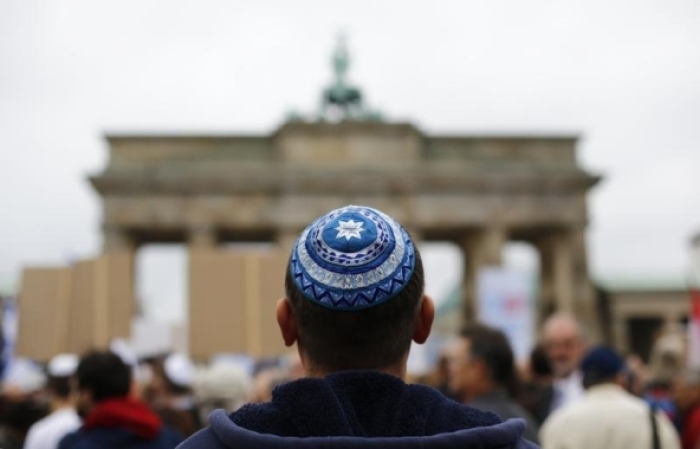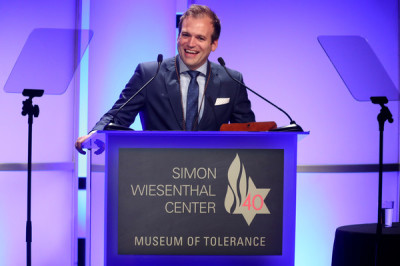‘Stand up,’ ‘speak often’: Christian leaders share ways to combat rising anti-Semitism

Amid the rise of anti-Semitism worldwide, The Christian Post spoke with two Christian leaders to get their opinions on what churches can do in response.
Last Thursday, the United States Holocaust Memorial Museum held a virtual ceremony in honor of International Holocaust Remembrance Day held on the anniversary of the liberation of the Auschwitz-Birkenau concentration camp. The event featured survivors who reflected on those targeted for extermination and others.
“On this annual day of commemoration, the U.N. urges every member state to honor the 6 million Jewish victims of the Holocaust and millions of other victims of Nazism and to develop educational programs to help prevent future genocides,” stated the Museum.
The observance came several days after British jihadist Malik Faisal Akram held four people hostage at a synagogue in the Dallas-Fort Worth area for around 10 hours before being killed by authorities.
Akram entered the synagogue disguised as a homeless man before he took hostages, demanding the release of al Qaeda terrorist Aafia Sidiqqui. None of the hostages were harmed.
“North America, the United States, and Canada have seen the highest rates of violent antisemitic attacks in the last couple of years that have been recorded,” wrote historian Bonnie K. Goodman for the Times of Israel.
In addition to the recent hostage incident, Goodman cited as examples the 2018 Tree of Life Synagogue shooting in Pittsburgh that resulted in 11 deaths and the 2019 shooting at the Chabad of Poway, California, which resulted in one death and three injuries.
According to an Anti-Defamation League report published in 2021, there were over 2,000 incidents of anti-Semitic assaults, harassment, and vandalism in 2020, making it the third-highest year for such hateful activity since the group began keeping track in 1979.
The Christian Post spoke to pro-Israel Christian leaders to get their opinions on the rise of anti-Semitism in the U.S. and what churches can do in response.
‘Stand up … Show up’

“I think that the American Jewish community feels it,” said Scott Phillips, executive director of Passages Israel, in an interview with CP on Friday.
“Synagogue shootings, hostage situations like we had a few weeks ago, and then just everyday anti-Semitic events happening more and more, particularly since 2018.”
Phillips believed that while anti-Semitism had always been around, recent technological advances such as the advent of social media had helped to strengthen the bigotry.
“Generally, for thousands of years, on and off, the Jewish community has experienced this — anti-Semitism in one form or another. And so, I think it’s just another iteration,” he noted.
“In addition to the foundational reasons why anti-Semitism happens, I think the rise in social media, in Twitter, all of these types of things, that groups and people that espouse these views have a platform.”
Phillips also believed that churches were not immune, pointing to such theological views as Replacement Theology as a likely source of Christian anti-Semitism.
According to Replacement Theology, also known as Supersessionism, Christians have replaced Jews as the Chosen People, and thus God has no more future plans for Israel.
To help combat the growing trend of anti-Semitism, Phillips explained to CP that he believed Christians needed to follow three steps: education, relationship, and action.
“One is just being aware that anti-Semitism exists and really educating ourselves on the history of anti-Semitism and the causes of anti-Semitism,” said Phillips.
“I think once you have that basis, number two is relationships with the Jewish community. The local Jewish community. Reach out, have relationships that are unconditional and that are based on shared values and trust.”
Phillips stressed the importance of the third step, “which is to stand up, to show up,” explaining how his organization reacted to the hostage crisis in Colleyville, Texas.
“Passages put together with the help of local church pastors, a prayer vigil just down the street, while the hostage situation was happening. So we’ve got to stand up, we’ve got to show up,” he added. “It’s really important to have tangible action.”
‘Speak loudly … Speak often’

The Rev. Johnnie Moore, a religious liberty activist who received the Simon Wiesenthal Center Medal of Valor for his human rights work, told CP that anti-Semitism was “the world’s oldest hate.”
“It has always been with us, but we are definitely seeing an increase,” said Moore. “We are seeing a convergence of anti-Semitism from the Far Left and the Far Right enabled by social media and by powerful public figures, including members of Congress.”
Moore spoke about numerous recent incidents, including a viral video of a rabbi being attacked in a parking lot, Jewish diners being assaulted in Los Angeles, and nationwide vandalism of synagogues.
Moore considered the Evangelical community in the U.S. and abroad as “a global firewall against anti-Semitism,” but also believed that “we can do more by standing up first to anti-Semitism among Christians.”
“For instance, the recent comments coming from the head of the PCUSA is absolutely anti-Semitism. We also should educate ourselves about Christian anti-Semitism in history,” he asserted.
As with Phillips, Moore told CP that an important way to combat anti-Semitism is to “make sure our relationship with our Jewish neighbors isn’t superficial.”
“In my case, almost weekly, I study the Hebrew Bible for one hour with a Jewish friend in Israel, me as a proud Christian and he as a proud Jew, but we have so much to learn from one another,” he said.
When asked by CP as to what Christians should do to counter the rising trend of anti-Semitism in the United States, Moore responded, “speak loudly, speak clearly, and speak often.”





























